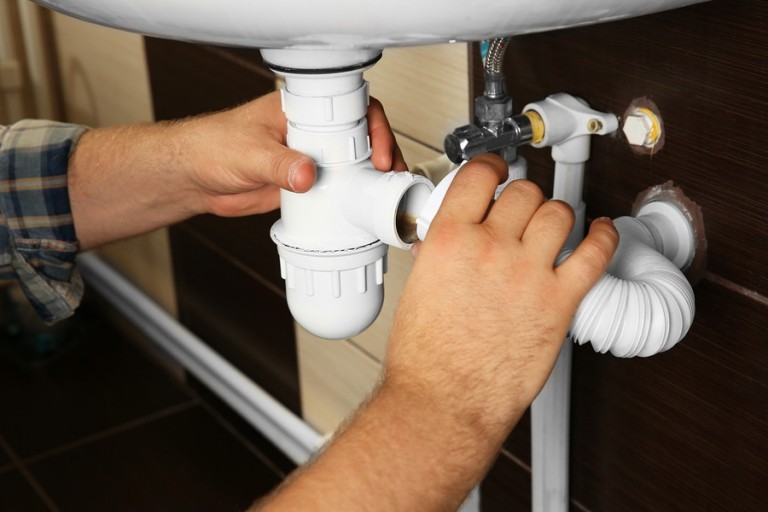How to Avoid Plumbing Clogs and Backups
July 13, 2017

We’re often called to a home to fix a clogged drain or messy backup, and it never fails: a drain will always get clogged at the worst possible time. Clogged drains are a headache to deal with and can be costly to resolve. No one wants to deal with that!
While it may not be possible to prevent every clog from occurring, you can take steps to prevent most of them. Here are some tips:
Give your pipes a good cleaning once a month. Hair, grease, and other gunk build up in drains over time. You can use a non-corrosive drain cleaner that uses safe bacteria to clear away grit and grime. You can also pour a little baking soda into the drain and follow with hot water, which not only cleans but also counteracts odors! Keep your sinks’ pop-up stoppers clean of hair and debris as well.
Fix recurring problems. It’s not uncommon for a pipe or sewer line to backup, don’t just wait for the next blockage to occur. Act now! It’s cheaper to fix the underlying cause of recurring blockages than to deal with the costs of frequent backups. Recurring issues may be caused by tree roots entering sewer lines or structural issues in the pipes. Have a professional come out and scope the line. This entails sending a remote camera down the drain to visually inspect what is happening.
Block debris from entering pipes. Hair is the most common cause of a clog. Prevent its descent into your plumbing by using a simple mesh drain screen for your tubs and showers. Don’t forget your laundry room, too! Install a lint catcher on your washing machine hose to prevent lint from entering your drain. These fixes will cost you less than $10!
Flush your drains regularly. Hot water helps break up oils in food products and clears out potential clogs, so run hot water down your drain on a frequent basis and add vinegar as well on occasion. Some low-volume fixtures and pipes rarely receive a large volume of water, which is needed to really clear out debris. Fix this by occasionally flushing a large flow of water (5 gallons) down sinks or bathtubs.
Don’t dump grease down the drain. Your grandma was right – collect your grease, don’t dump it. Grease is one of the worst things you can put in your pipes. When it cools, it congeals and other things easily become stuck in it. Same goes for greasy foods!
Give your garbage disposal a rest. While grinding up food and coffee grounds in the sink may be convenient, it can cause plumbing issues. When possible, collect waste and compost it instead. Keep your garbage disposal clean with a special brush or grind up some ice cubes with salt to cut grease and clean the sides.
Don’t throw things down the toilet. This includes dental floss, hair, and cotton balls! It’s much safer to just use the trashcan instead. In addition to burdening the sewer lines and water treatment facility, it can get snagged on something in your pipes and start a clog.
Doing these things can prevent most issues. However, despite your best efforts, you may encounter a clogged pipe or drain at some point in the future. If that happens, we’ve got you covered, and we stand behind our work with full service warranties!
